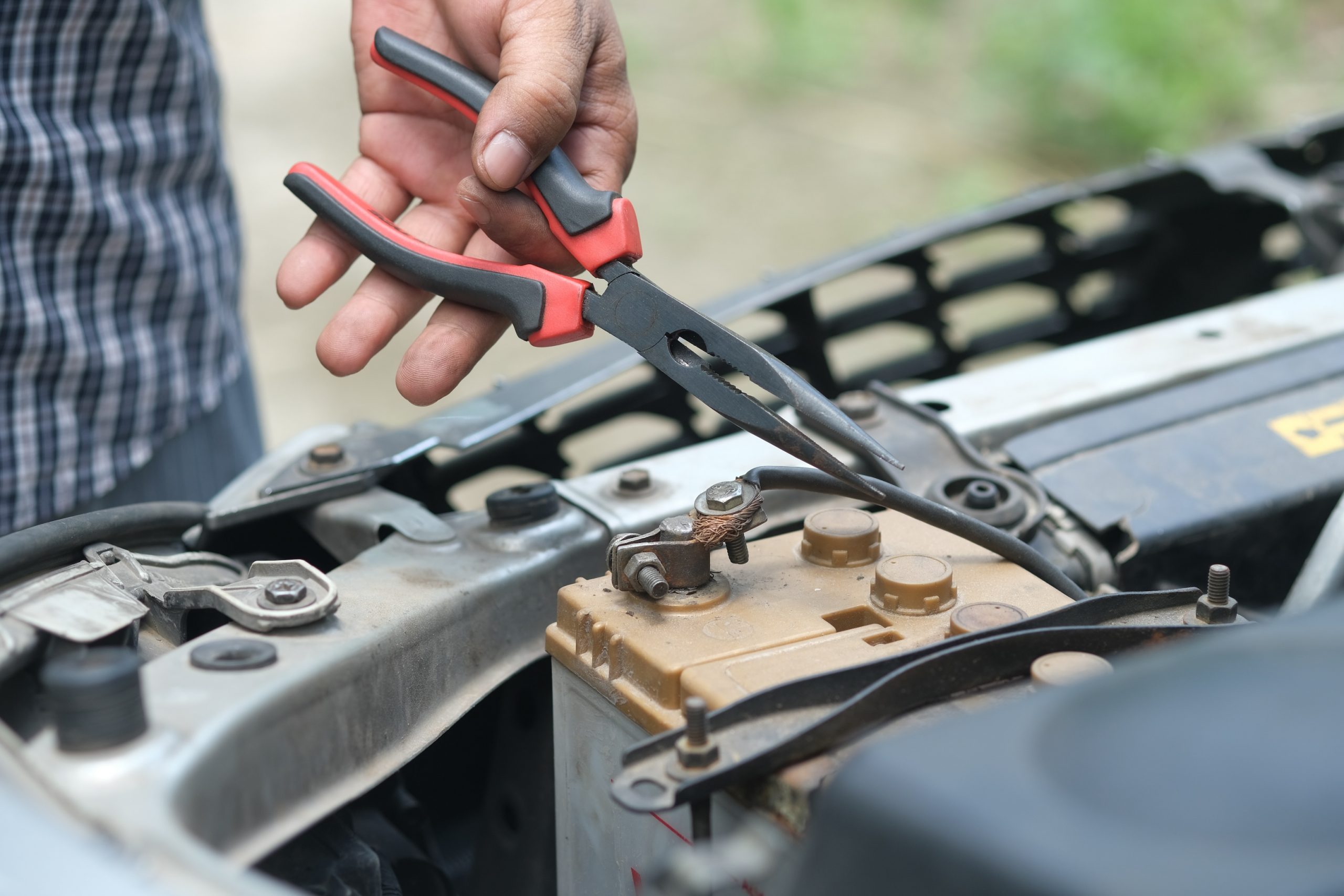

The vehicle’s electrical system, a sophisticated network of interconnected components, is vital for powering your vehicle and its various functionalities. This system is indispensable for operation, from igniting the engine to illuminating the headlights. In this month’s blog post, we explore the essential elements of this system and the typical problems you might encounter when there are failures in the electrical system.
Electrical System Basics
The electrical system of your vehicle is engineered to generate, store, and distribute electrical current to the various electrical devices in your vehicle.
The three main elements of the vehicle’s electrical system include:
- Starter: The starter cranks and helps to start the engine when the ignition is activated.
- Alternator: The alternator recharges the vehicle’s electrical system during operation and powers other components with electrical currents.
- Battery: The battery supplies the initial charge to your vehicle’s starter and alternator.
Common Electrical System Issues
The electrical system of a vehicle is subject to wear, tear, and failure for a variety of reasons. These problems can vary from minor annoyances to significant faults that can impact the vehicle’s performance.
Below are some common electrical problems, their symptoms, and how they are resolved.
Starter Motor
The starter motor triggers the engine’s operation. If it fails, you might hear a clicking sound when attempting to start the car, or it may not start at all. In such instances, the starter motor typically needs to be replaced.
Alternator
The alternator recharges the battery and powers the electrical system while your vehicle is in operation. If your alternator is failing your headlights may become dimmed, or flicker. Or you may also have a dashboard warning light illuminate for ALT or GEN. If you experience these issues, the alternator may need to be replaced.
Battery
If your vehicle will not start, it may be the result of the battery as the most prevalent electrical issue is a dead battery. If your vehicle works after a jump start, the battery may have just needed to recharge. If it continues to fail, the battery will probably need to be replaced because it is unable to hold a charge. You can have the battery tested to determine if it is holding a charge or needs to be replaced with a new one.
Fuses
Fuses are a safety device that protect the vehicle’s electrical circuits. If an electrical component ceases to function (e.g., wipers, lights), it could be due to a blown fuse. The fuse is designed to provide protection when there is too much current running through the circuit. Blown fuses are replaced to resolve any electrical issues.
Spark Plugs
Spark plugs ignite the fuel in the engine. If the plugs are defective, you might experience poor fuel economy, engine misfires, or difficulty starting your vehicle. Replacing old or defective spark plugs can rectify these issues.
Maintenance for The Vehicle’s Electrical Systems
Fortunately, there are ways to maintain your vehicle’s electrical system through regular maintenance and servicing, which include:
- Checking the Battery: You should periodically inspect your battery for signs of corrosion or loose battery cables.
- Inspecting the Lights: It is advisable to check the various lights on the vehicle to ensure they are working properly. Make sure to test brake lights, front and high beams, rear lights, and turn indicators.
- Checking Fuses and Wiring: Regularly check fuses and wiring for any signs of damage or wear.
- Avoiding System Overload: Avoid using too many devices simultaneously as it can overload your car’s electrical system.
If you have concerns about your vehicle’s electrical system, contact the service professionals at Car Kings to schedule an appointment for an inspection and/or repairs.
